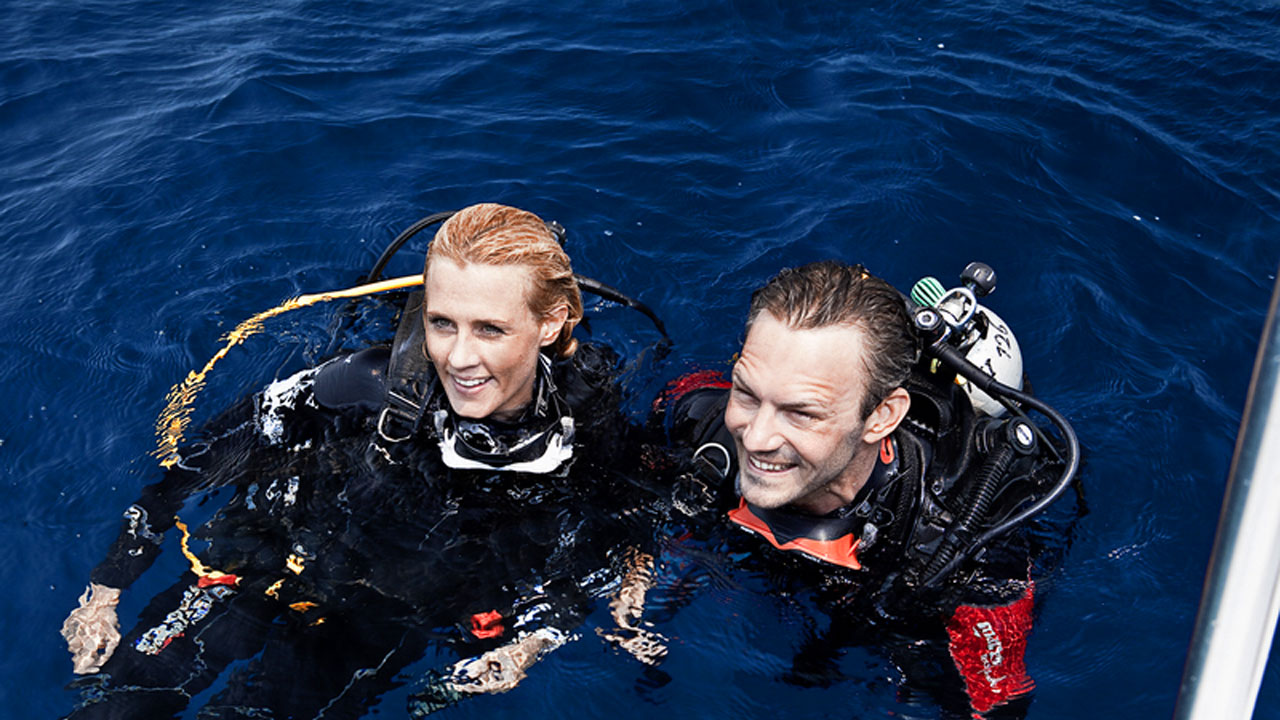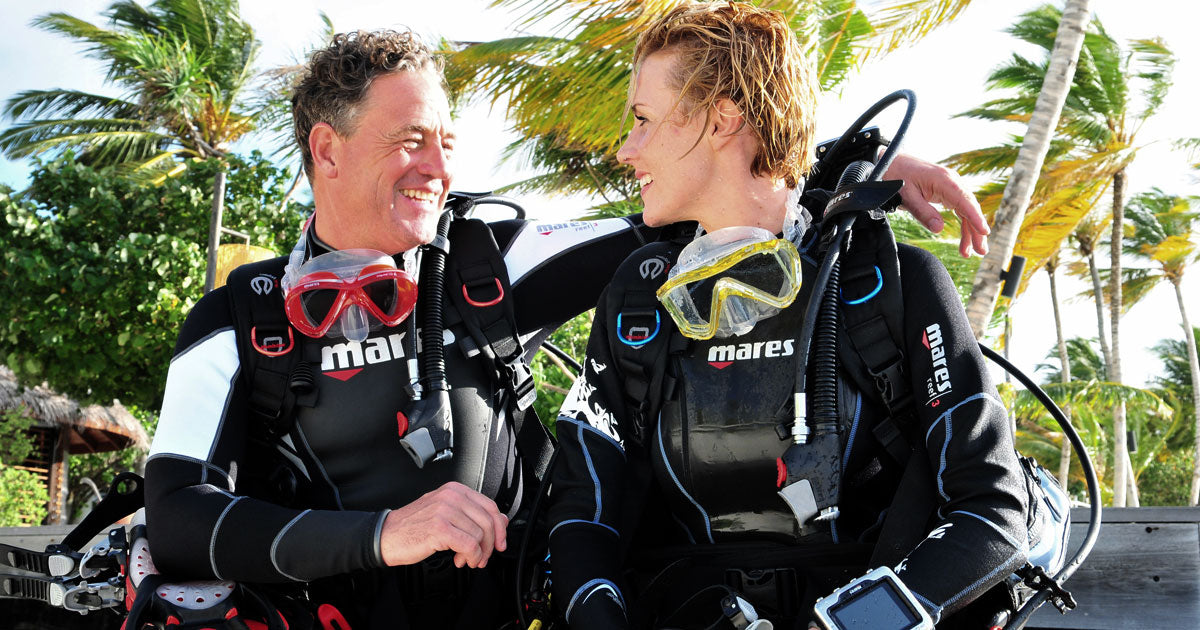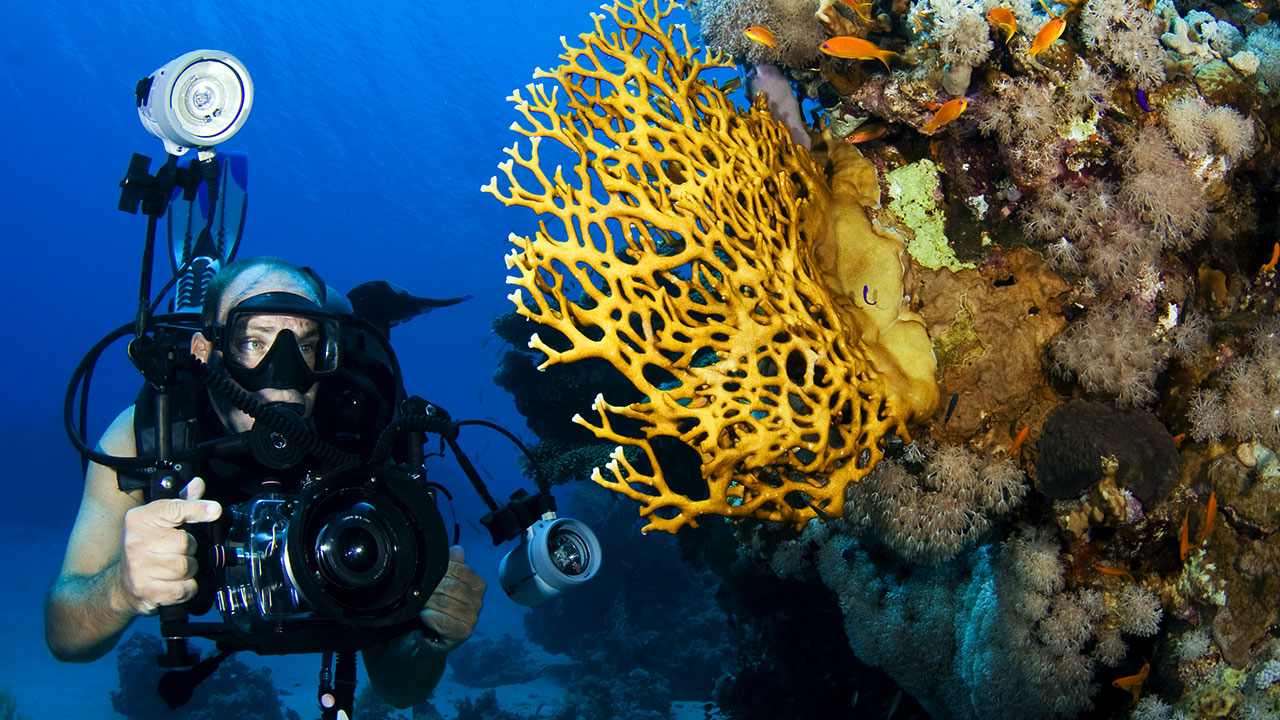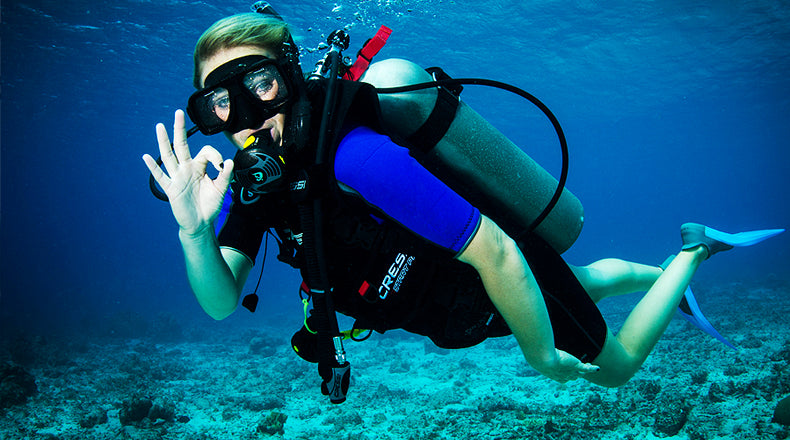Continuing Education: 5 Signs That It Is Time to Take Your Next Scuba Course

For virtually every diver, there comes a point in their diving “career” when they need to go back to the classroom. Whether you are a novice diver, not confident enough in your abilities, or a scuba pro, starting to experience a bout of aquatic apathy, enrolling in additional scuba classes might be just the cure. Continuing your scuba education is a great way to advance your diving knowledge, build confidence, gain new and perfect existing skills, expand the horizons of your diving world and unlock a fresh passion for underwater exploration.
So here are 5 possible signs that it is time to take your next scuba course:
1. It’s been a while since your last dive
You finally have a vacation planned and you want to dive, but you can’t even recall the last time you had your scuba gear on. Circumstances may have kept you out of the water for a while and you’re not certain you’ll be able to do everything correctly when you next take the plunge. You’re looking at your scuba kit and you’re struggling to remember just how the gear fits together. All of these are clear sights that you need to take a refresher course. A great thing about the refresher course is that it’s usually highly personalized. The instructor can help you review the basic scuba skills and concepts, go over the ones you struggle with the most or simply let you get into the water, swim around and practice in a safe supervised environment until you feel comfortable again.
2. You’ve been diving at the same location and want to try something new
Maybe you have a local dive site you return to over and over again or maybe you’re in a tropical vacation routine and you start falling into a diving rut. Continuing education can be the solution to spice things up. There is a variety of specialty courses (think Night Diver, Fish Identification, Underwater Photographer, etc.) that can help you see a familiar dive site through new eyes. You can also try something completely different, such as going ice diving, altitude diving, cave diving... There is a huge range of diving opportunities and locations to explore once you have the necessary skills, knowledge, and training.
3. You’ve gotten too comfortable
If you are a seasoned diver, with years or even decades of experience and hundreds of dives under your belt, there may come a time when you feel that you know everything and you’re done learning. Guess what, that’s never true. Complacency can lead to such rookie mistakes as forgetting to turn on air (because experienced divers don’t need pre-dive checks, right?) or running low on breathing gas (because you can push it to the edge as long as you know what you’re doing). In reality, you’re never too old, too experienced, or too educated to keep learning and even veteran divers need to remember their training, keep their priorities straight, and focus on the basic skills. Putting yourself back in the fins of a student can remind you all of that, and perhaps show you that there are so many more exciting things to soak up about the mysteries of diving and the deep.
4. You’re not comfortable enough
Lack of confidence is one of the biggest reasons why novice divers don’t continue to dive despite really wanting to. Perhaps you’re anxious about your ability to perform skills that you struggled with during basic training or you don’t feel comfortable venturing out with just a buddy and not an instructor. All of this can be resolved through continuing-education courses. If you feel particularly worried about a certain skill, such as buoyancy or navigation, a specialty diver course might be the right choice for you. It will provide an in-depth learning experience in a chosen aspect of scuba and strengthen the skill in question. You can also go to the next “level” (Advanced Diver and equivalents) in your diving certification to broaden your capabilities and understanding of scuba diving.
5. You love diving and want to share your passion with others
If you want diving to be more than just a hobby and feel that you have a personality and patience to teach, leadership training may be your path to fulfillment. Preparation to become a scuba instructor requires mastery of diving theory, which includes a thorough grounding in diving physics, physiology and equipment mechanics, as well as near-perfect diving skills. Additionally, you should understand that a scuba instructor must be capable of working with a wide range of personalities and circumstances. So you need to have good people skills and be ready to work long and highly irregular hours, often on weekends and holidays. The requirements and the leadership course itself differ among certifying organizations, but on average expect to complete about 200 hours of training in prerequisite courses and 60-80 hours for the actual leadership course. Although scuba leadership is definitely not for everyone, and the training process takes a lot of time and effort, it can be a real life-changing experience.
Did you ever experience any of these signs? What continuing education courses did you take and which ones are your favorite? Let us know in the comments!





Good evening. I earned my c card several years ago through your agency, but it has been a couple of years since my last open water dive and I’m interested in taking a refresher pool class or to get some pointers while in the pool. Do you offer such an experience so I can get back in the water on my next vacation? Please and thank you.